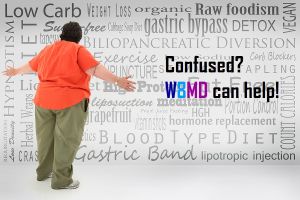Low-sodium diet
A low-sodium diet is one that restricts the intake of salt, which is a major source of sodium. Sodium is an essential mineral that helps to maintain fluid balance, regulate blood pressure, and support nerve and muscle function. However, excessive intake of sodium can lead to high blood pressure, heart disease, and stroke. Therefore, a low-sodium diet can be beneficial for individuals who are at risk of these health conditions.
Guidelines for a Low-Sodium Diet
The American Heart Association recommends a daily intake of less than 2,300 milligrams (mg) of sodium for most adults. However, for individuals with high blood pressure or other health conditions, The recommended intake may be lower, typically around 1,500 mg per day. A low-sodium diet is a dietary approach that involves reducing the amount of sodium in one's diet. Sodium is an essential mineral that is necessary for various bodily functions, such as maintaining fluid balance and nerve function. However, excess sodium intake can lead to health problems, such as high blood pressure, heart disease, and stroke.
Why is sodium important
- Sodium is essential for various bodily functions, including:
- Regulating fluid balance
- Maintaining proper nerve and muscle function
- Supporting cellular function
- However, most people consume too much sodium, which can have negative health effects.
What is a low-sodium diet
- A low-sodium diet is a dietary approach that involves limiting the intake of sodium. The american heart association recommends consuming no more than 2,300 milligrams (mg) of sodium per day, and ideally, less than 1,500 mg per day for certain populations, including those with high blood pressure, african americans, and middle-aged and older adults.
Foods high in sodium include
- Processed foods (canned, frozen, and packaged foods)
- Fast food and restaurant meals
- Condiments such as soy sauce and ketchup
- Snack foods such as chips and pretzels
- Salted nuts and seeds
Foods low in sodium include
- Fresh fruits and vegetables
- Whole grains
- Lean proteins such as chicken, turkey, and fish
- Low-fat dairy products
- Herbs and spices for flavoring
- Benefits of a low-sodium diet
A low-sodium diet can have various benefits, including
- Lowering blood pressure: high sodium intake can cause high blood pressure, which can increase the risk of heart disease and stroke. A low-sodium diet can help to lower blood pressure and reduce the risk of these health problems.
- Reducing fluid retention: excess sodium intake can cause the body to retain fluids, which can lead to bloating, swelling, and weight gain. A low-sodium diet can help to reduce fluid retention and alleviate these symptoms.
- Reducing the risk of chronic diseases: a low-sodium diet can help to reduce the risk of chronic diseases, such as heart disease, stroke, and kidney disease.
Risks of a low-sodium diet
- While a low-sodium diet can have various health benefits, it is not appropriate for everyone. Some people, such as athletes or people with certain medical conditions, may require a higher sodium intake.
- Additionally, a low-sodium diet can be challenging to follow, especially for those who are used to consuming high-sodium foods. It is important to work with a registered dietitian to develop a healthy and balanced low-sodium meal plan.
Tips
Here are some tips for following a low-sodium diet: Choose fresh foods: Fresh fruits, vegetables, and lean proteins are naturally low in sodium. Avoid processed or packaged foods, as they are often high in sodium. Read labels: When buying packaged foods, check the label for the sodium content. Choose products that are labeled "low sodium" or "no added salt." Use herbs and spices: Instead of salt, use herbs and spices to add flavor to your meals. Garlic, onion, basil, thyme, and black pepper are all good options. Limit condiments: Condiments such as ketchup, mustard, and soy sauce are high in sodium. Use them sparingly or choose low-sodium options. Be aware of hidden sources of sodium: Sodium can be found in unexpected places, such as bread, cereal, and cheese. Read labels carefully and choose lower sodium options when possible.
Benefits of a Low-Sodium Diet
Following a low-sodium diet can have several health benefits, including:
- Lowering blood pressure: Sodium can contribute to high blood pressure, which is a major risk factor for heart disease and stroke. a low-sodium diet can help to reduce blood pressure and lower the risk of these conditions.
- Improving heart health: A low-sodium diet can help to reduce the risk of heart disease and stroke by improving cholesterol levels and reducing inflammation.
- Supporting kidney function: Excessive intake of sodium can damage the kidneys, leading to kidney disease. a low-sodium diet can help to support healthy kidney function.
- Reducing fluid retention:
Sodium can cause the body to retain fluids, which can lead to swelling and bloating. a low-sodium diet can help to reduce fluid retention and promote a healthier, more comfortable body.
Also see
This is a short summary article. For quality control, we do not encourage or allow strangers to edit the content.


